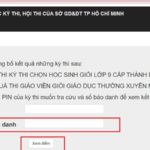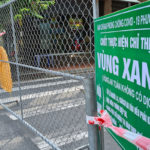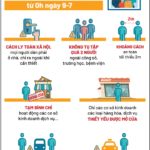According to the Social Order Management Police Department (PC06), the police are still accepting applications for CCCD for permanent residents in Ho Chi Minh City. In addition, from 01/05/2021, people with temporary residence books in Ho Chi Minh City can also apply for CCCD here without having to return to their place of permanent residence.
So, what are the notes when applying for a CCCD with a chip in Ho Chi Minh City for temporary residents? Let’s find out together.
1 Location and time for CCCD application for temporary residents in Ho Chi Minh City
 Location and time for CCCD application for temporary residents in Ho Chi Minh City
Location and time for CCCD application for temporary residents in Ho Chi Minh City
If previously, Ho Chi Minh City police would receive applications for CCCD for temporary residents from 01/07/2021, now the application acceptance has been made two months earlier (meaning 01/05/2021). Therefore, according to information from PC06, you need to know some important information when applying for a CCCD for temporary residents, specifically:
– Subjects eligible for CCCD application: Temporary residents with household registration. This means that temporary residents have a permanent residence in any other province or city (not in Ho Chi Minh City). This is a condition that must be met when applying for a CCCD in Ho Chi Minh City for temporary residents.
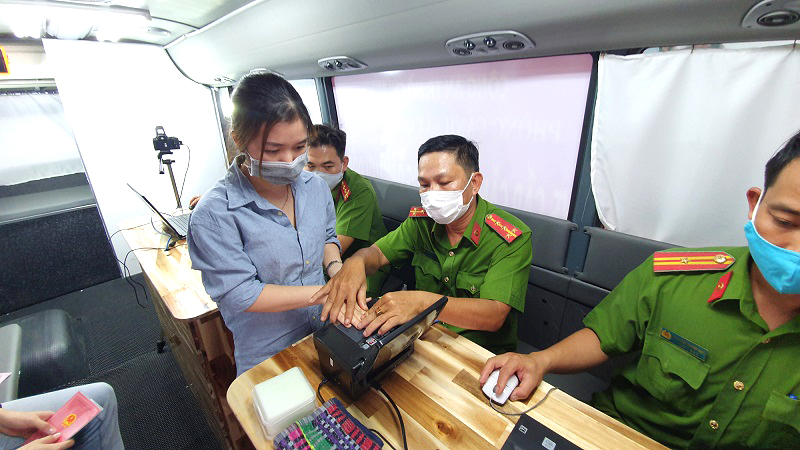 Application acceptance location
Application acceptance location
– Application acceptance location: Thu Duc City Police and the police of 21 other districts in Ho Chi Minh City will be the places to receive applications from temporary residents. Note, the headquarters of Room PC06 (459 Tran Hung Dao, Cau Kho Ward, District 1, Ho Chi Minh City) will not accept this application for you.
Currently, PC06 officers and equipment are being transferred to Thu Duc City and other districts to support and assist the locality to achieve the fastest progress. Therefore, PC06’s two mobile CCCD issuance vehicles are still issuing CCCDs in the districts and rural areas of Ho Chi Minh City (giving priority to schools and hospitals,…)
2 Types of papers that temporary residents need to bring
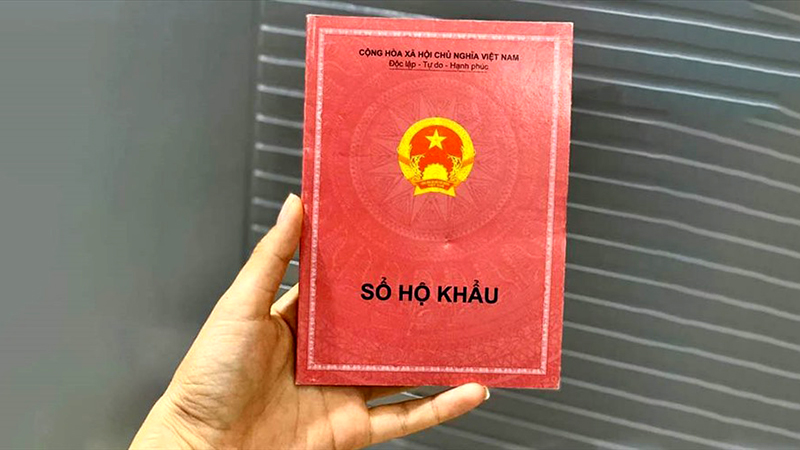 Types of papers that temporary residents need to bring
Types of papers that temporary residents need to bring
According to the representative of PC06, temporary residents applying for CCCD do not need to bring any papers to prove their temporary residence in Ho Chi Minh City. Instead, temporary residents need to bring papers proving their permanent residence, old ID/CCCD, and household registration book for officers to receive and compare data.
Birth certificates or a few other civil status papers are only required when officers need to compare, check and verify some information about the date of birth, civil status,… which is not available on the old ID/CCCD and household registration book,…
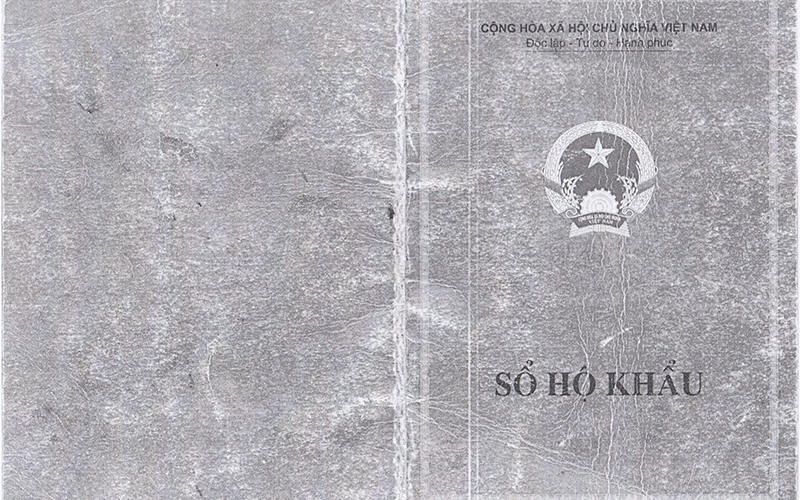 Not accepting certified true copies of household registration books
Not accepting certified true copies of household registration books
Note, PC06 informs that officers will not accept certified true copies of household registration books instead of the original. According to the guidance of the Ministry of Public Security, people (temporary residents in Ho Chi Minh City) must provide the original household registration book to compare information most accurately.
Therefore, temporary residents can return to their hometown or ask their relatives in their hometown to send the original household registration book to Ho Chi Minh City (if they do not have the original household registration book in Ho Chi Minh City). In this case, temporary residents should consider between returning to their hometown to apply for a CCCD or bringing their household registration book to Ho Chi Minh City to apply for a CCCD.
 Comply with COVID-19 prevention and control
Comply with COVID-19 prevention and control
With the current complex developments of the COVID-19 epidemic, people must be careful to take care of their health and their families’ health when returning to their hometown and during the entire CCCD application process.
In addition, the CCCD with a chip (or the old ID card) contains information about the place of permanent residence of the people. Therefore, to be able to get a CCCD, you must have a place of permanent residence (household registration book). If you do not have a place of permanent residence (household registration book), you will not have an ID card, and currently, the competent authorities cannot issue a CCCD.
Refer to for more information on the procedure for issuance/return of the card.
3 Some notes when applying for a CCCD for temporary residents in Ho Chi Minh City
If you do not have a place of permanent residence (household registration), you will not be able to obtain a CCCD. Therefore, you need to pay attention to the following:
If a person’s household registration is deleted, it must be re-registered before the CCCD can be changed.
If a person has not registered for permanent residence, they must also register (household registration) in the following cases: Wife living with her husband; husband living with his wife; children living with their father or mother; father or mother living with their children; people of retirement age, retired, or unable to work living with their brothers or sisters;
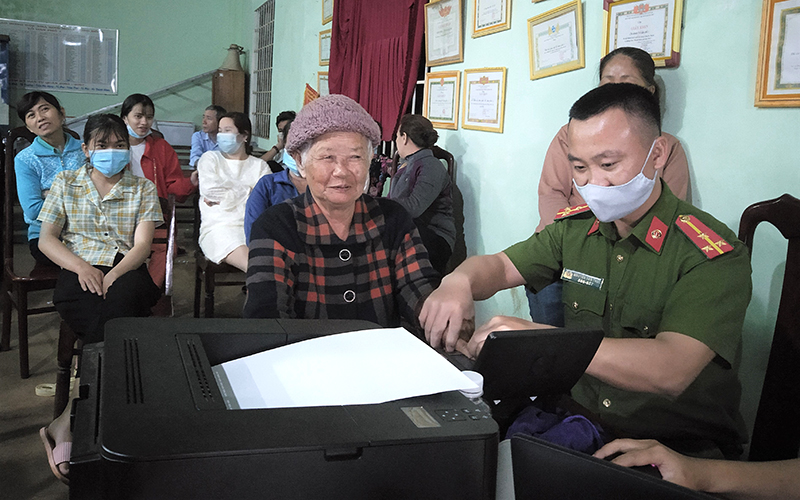 Temporary residents need a household registration book to be granted a CCCD
Temporary residents need a household registration book to be granted a CCCD
People with disabilities who have lost their ability to work; mental patients or patients with a loss of perception or behavioral control living with their brothers or sisters, aunts, uncles, or cousins, or guardians;
Minors without parents (or with parents but parents unable to care for them) living with their grandparents, brothers or sisters, aunts, uncles, or cousins, or guardians; single adults living with their grandparents, brothers or sisters…
In these cases, a birth certificate and a dossier as prescribed by law must be obtained to register their household, and then continue to apply for a CCCD.
If a person does not have Vietnamese nationality (foreigners, stateless persons,…) and therefore does not have civil status or identification papers (birth certificate, household registration book, ID card,…), there is no specific basis for the competent authorities to issue an ID card/CCCD as prescribed.
See also: for detailed and complete information to register in accordance with the regulations of Vietnamese law.
Refer to the above notes from us!
Hopefully, through the above sharing, you now know the notes when applying for a CCCD with a chip in Ho Chi Minh City for temporary residents. If you have not yet applied for a CCCD, please refer to this information and go to apply as soon as possible.
Ho Chi Minh City Imposes Travel Restrictions Amid Social Distancing
In order to defeat the COVID-19 pandemic, Ho Chi Minh City has enacted the implementation of Directive 16 and has adopted various safety protocols. These latest measures now include guidelines on approved travel within the city. Let’s learn more about who is allowed to travel in Ho Chi Minh City during this time.
Ho Chi Minh City to Allow 17 Groups to Travel Freely Starting September 16, 2021
The Ho Chi Minh City Police Department has unveiled document 3660/TB-CATP-PV01, granting some citizens of the city the right to conduct business activities and travel without a travel permit, as long as they uphold current disease prevention regulations. Read on for an in-depth look at these new guidelines!


























